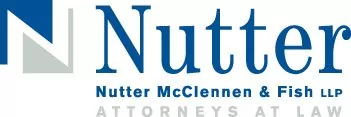Originally published on 13th December 2010
Generally speaking, Massachusetts is a non-judicial foreclosure
state – meaning that lenders can foreclose on mortgages
of Massachusetts property without seeking judicial approval
beforehand. In certain circumstances, however, a pre-foreclosure
judicial proceeding is required solely to determine whether the
borrower is in the active military service and entitled to the
protections of the Servicemembers Civil Relief Act, 50 U.S.C.
§532.
Recently, a number of Massachusetts and Bankruptcy Court cases
have set aside foreclosures by lenders who did not have appropriate
evidence beforehand that such lenders were holders of the mortgages
being foreclosed. See US Bank v. Ibanez, 17 LCR 202 (Mar.
26, 2009) & 17 LCR 679 (Oct. 14, 2009); In re
Schwartz, 366 B.R. 265 (Bankr.D.Mass. 2007). These lenders
acquired the mortgages through securitizations or other transfers,
but did not have evidence of valid assignments of the mortgages
prior to commencing the steps to conduct the foreclosure
sales.
Somewhat surprisingly, the Massachusetts Land Court recently
held that a lender could bring suit under the Servicemembers Civil
Relief Act without necessarily having an executed assignment of the
mortgage prior to commencing suit. US Bank, N.A. v. Hanlon, et
al., No. 10-MISC-429997 (Plymouth Land Court Aug. 20, 2010) at
3. Because an action under the Act is limited to determining
whether the borrower is entitled to benefits under the Act, and by
law cannot address any other issue, such as whether the borrower
breached its loan or mortgage obligations or whether the lender has
standing to conduct a foreclosure sale, a lender does not need to
be the current holder of the note or the mortgage to have standing
under the Act. Id. at 2. Instead, all that is required to establish
standing in an action under the Act is to show that the lender has
suffered injury as a direct and ascertainable consequence of the
challenged action, and such injury was contemplated in the
statutory scheme under which the challenged action occurred. Id. at
3.
More specifically, in US Bank v. Hanlon the mortgage at
issue had been assigned to a mortgage-backed trust of which US Bank
was the trustee. The Land Court held that a mortgage facially
appearing to be a part of trust property is sufficient to give the
trustee an interest in determining whether the borrower is entitled
to the benefits of the Act since such entitlement affects the
collectability, and therefore the present value of, that loan. Id.
at 4. As the trustee, the lender has a fiduciary responsibility to
the trust certificateholders to maintain and collect upon trust
assets. Any reduction in the value of the trust assets could expose
the lender to liability. The Land Court concluded that such
liability is an injury falling within the area of concern of the
Act and is therefore sufficient to grant the lender standing to
file a complaint under the Act. Id.
Assuming that other Massachusetts courts elect to follow the
ruling in US Bank v. Hanlon, the decision allows lenders
to begin the foreclosure process pursuant to the Act while
continuing to perfect their rights in the mortgage prior to
commencing the non-judicial foreclosure sale. Since obtaining a
decision under the Act can take several months, the Land
Court's decision potentially expedites the foreclosure process
for loans that have been transferred or assigned without all of the
documentation in place at the time of transfer or assignment.
This advisory was prepared by Beth Mitchell and Tracy
Chu of the Commercial Finance practice at Nutter McClennen &
Fish LLP. For more information, please contact Beth, Tracy or your
Nutter attorney at 617.439.2000.
This update is for information purposes only and should not be construed as legal advice on any specific facts or circumstances. Under the rules of the Supreme Judicial Court of Massachusetts, this material may be considered as advertising.


